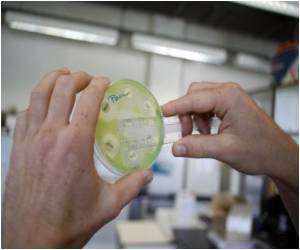In 70% of patients, Acute myeloid leukemia (AML) is an aggressive blood cancer that is currently incurable.

CSHL Assistant Professor Christopher Vakoc, M.D., Ph.D., and colleagues, including the group of Professor Robert Roeder Ph.D. at The Rockefeller University, report the characterization of a protein required for AML in a paper published today in the Proceedings of the National Academy of Sciences.
Screening of DNA packaging proteins calls attention to RNF20
About 5%-10% of AML is characterized by the rearrangement of a gene called MLL (Mixed-Lineage Leukemia). The MLL fusion proteins that result from this rearrangement are potent oncogenes -- cancer-causing genes. They are particularly common in infant acute leukemia, which is usually resistant to standard chemotherapy.
An emerging body of evidence implicates problems with chromatin, the packaging material for DNA within the cell nucleus, as a major cause of acute leukemia. Based on this, Vakoc's laboratory is searching for novel drug targets among chromatin proteins, with the hope of identifying new ways to fight this disease.
"We sifted through a class of proteins that add 'protein tags' to chromatin in a search for new therapeutic targets", says Eric Wang, a former technician in the Vakoc lab who led this study. Wang is currently a doctoral student at Johns Hopkins University. These 'protein tags' are called ubiquitin and constitute one of many ways to control which genes are switched 'ON' or 'OFF' in our cells.
Upon closer examination, the team realized that by targeting RNF20 they prevent MLL-fusion proteins from being able to work. "When we reduce the levels of RNF20 in leukemia cells, they revert back to being more like normal blood cells", says Shinpei Kawaoka, a postdoc in the Vakoc lab who also was involved in the study.
Source-Eurekalert
 MEDINDIA
MEDINDIA




 Email
Email






